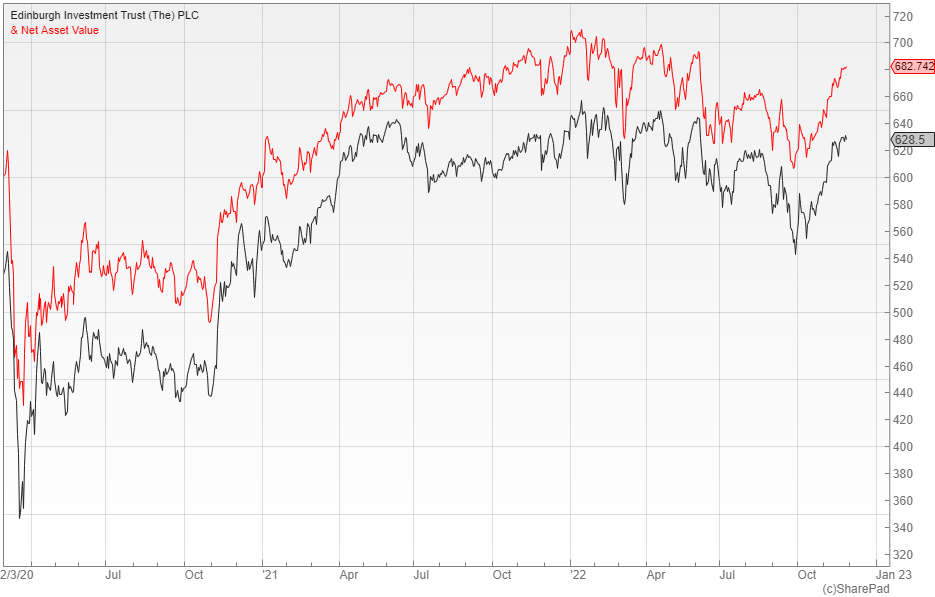Edinburgh Investment Trust: Good Progress under New Manager

A lot has happened to the £1.2bn Edinburgh Investment Trust (LON: EDIN) in the last few years. In March 2020 the board replaced Invesco’s longstanding manager Mark Barnett after three years of underperformance and put in place a team from Majedie, a firm which was subsequently taken over by Liontrust.
Barnett’s value-based approach had been out of favour for a considerable time, but there were also question marks over some of his stock selection decisions. Once he had been sacked the board took the opportunity to reduce the annual management fee and switch to a tiered charging structure.
It looks like the changes are starting to pay off as James de Uphaugh and Chris Field, who have been running the fund since the removal of Barnett, have done a good job improving the performance. Since March 2020 the trust has generated NAV and shareholder total returns of 56.9% and 66%, significantly ahead of the FTSE All Share total return of 43.3%.
A key recent development has been the re-financing of the expensive 7.75% long-term debt, with the fund issuing £120m of loan notes at an average interest cost of 2.44% and average maturity of 25 years. This cheap source of capital should give it a competitive advantage in the years to come.
A new approach
EDIN offers a diversified portfolio of 40 to 50 listed equities based on fundamental company research. There are no in-built style biases with the fund typically containing a mixture of growth, value and recovery stocks, the aim being to add value regardless of the economic and market conditions.
The stock-driven analysis focuses on the identification of companies with strong and sustainable business models, multiple drivers of returns and quality management teams. It’s a high conviction approach with capital protection a key element, with the manager considering the downside risk for each holding and scaling the position accordingly.
At the end of September the largest holdings included the likes of: Shell, Unilever, BAE, AstraZeneca, Tesco and NatWest. The key sector weightings were retailers, biotech and medical, banks, oil and gas. Overall the historic dividend yield was an attractive 4.2% and the ongoing charges a competitive 0.52%.
Solid footing
Having taken over at the height of the pandemic the first step was to re-balance the portfolio and rebase the dividend to a more sustainable level. The long-term objective is to grow the distributions ahead of inflation with the first interim dividend having recently been increased by 6.7%. A decision is yet to be taken about the total pay-out for the financial year.
James de Uphaugh has put together a well-diversified portfolio with multiple drivers of returns that should be able to withstand the uncertain economic environment. He believes that the inflationary pressures are easing and draws attention to the low valuations that look cheap on pretty much whatever metric you want to use.
The broker Investec believes that the Edinburgh Investment Trust has made solid progress in rebuilding credibility after what was a traumatic period, while stronger foundations bode well for the future. They have a buy rating on the fund and say that if the healthy absolute and relative performance can be maintained then the discount should narrow from the current level of seven percent.

Comments (0)